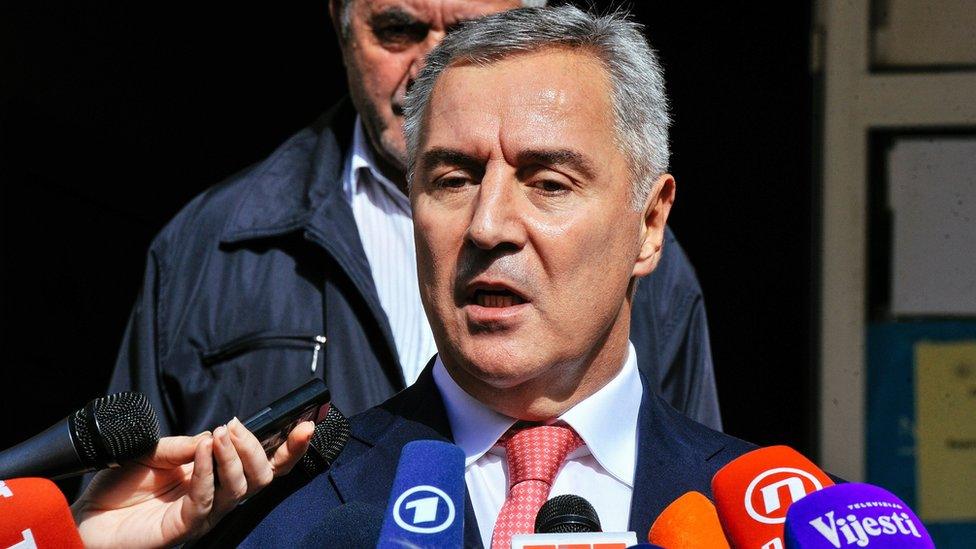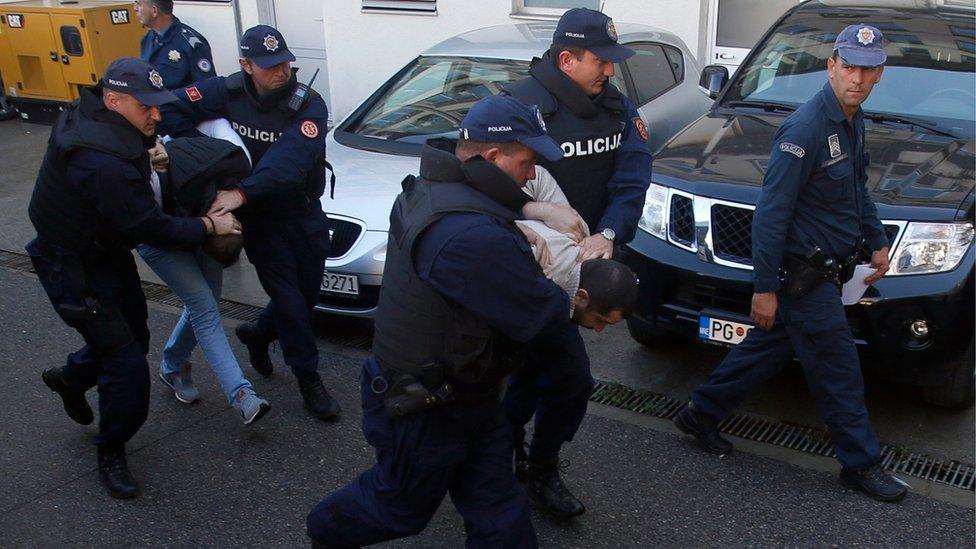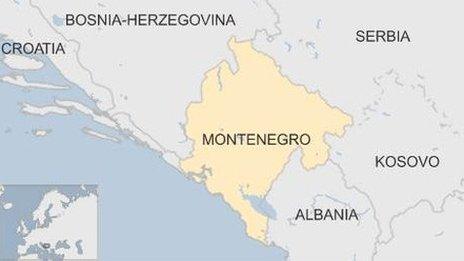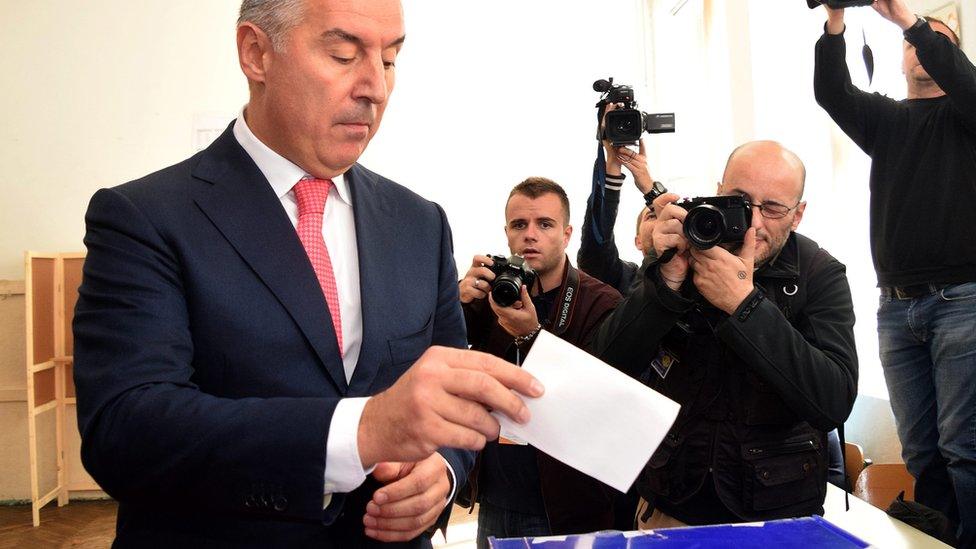Serbia arrests group for 'spying on Montenegro PM'
- Published

Mr Djukanovic, a political veteran, has steered Montenegro towards the EU and Nato
Serbia says it has detained several people with foreign links involved in spying on Montenegro's prime minister.
Serbian Prime Minister Aleksandar Vucic said the suspects had passed on details of PM Milo Djukanovic's movements to others who were "to act on it".
Mr Djukanovic - a pro-EU and pro-Nato leader - was re-elected on 16 October. That day the Montenegrin authorities arrested 20 Serbian paramilitaries.
Mr Djukanovic accuses some opposition groups of receiving Russian funding.
His Democratic Party of Socialists won the election but fell short of a parliamentary majority.
"There is irrefutable evidence that some people, and that's not those who were arrested, monitored the movement of the Montenegrin prime minister on a daily basis, every second, telling other people who were supposed to act on it," Mr Vucic said.
"Money has been found as well, about 125,000 euros, uniforms and other things."
Pro-Western push

Serbians arrested in Montenegro on 16 October have been charged with terror offences
Mr Vucic, quoted by Serbia's B92 news, stressed that the suspects "have nothing to do with the Serbian state". Some were detained in Belgrade, he said, without giving further details about them.
But some of the suspected spies were still at large, he said. "The good news is that in all this we found no involvement of any politician from Serbia, or from Montenegro," he added.
Since splitting from Serbia in 2006 Montenegro has forged close ties with the EU and Nato, both of which it aims to join.

Montenegro: Nato's newest and last member?
Montenegro and Nato: Foes to friends?
Many Montenegrins are unhappy that Mr Djukanovic is taking the country into Nato.
They remain angry that Nato bombed Serbia and Montenegro in 1999 as part of a strategy to halt the killing and expulsion of ethnic Albanians in Serbia's then southern province of Kosovo.
The opposition accuses Mr Djukanovic of corruption and cronyism, which he denies. They deny his claims that they get funding from Moscow.
Montenegro, which has a population of some 630,000, has in recent years seen an influx of Russian money, homebuyers and tourists.
- Published17 October 2016
